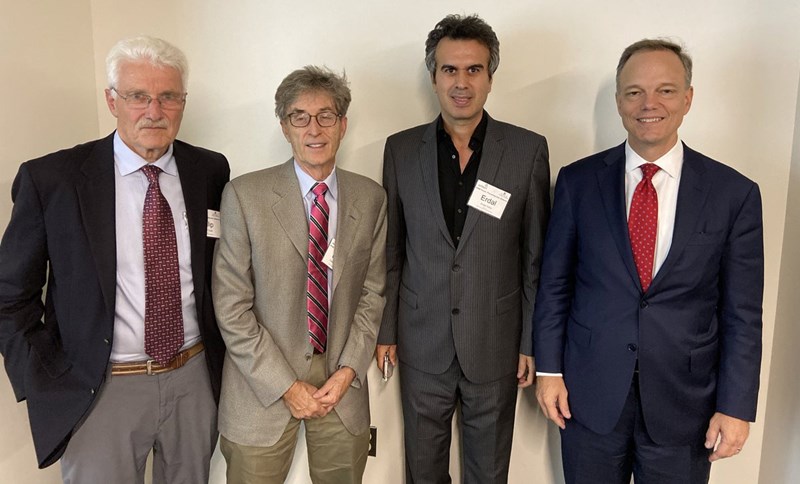On Wednesday, October 2nd, APPAM and the American University School of Public Administration hosted the JPAM Forum Preventing Gun Violence: Public Health and Public Policy Approaches, as well as a a lecture by Mathematica President and CEO, Paul Decker, entitled A New Era for Evidence: What Evaluation and Analysis Mean to Public Policy in 2020.
The Forum was hosted by AU SPA Professor and JPAM Editor-in-Chief Erdal Tekin, and featured two renowned public policy experts Duke University’s Philip J. Cook and Harvard University’s David Hemenway, who discussed approaches to preventing or tackling the problem of gun violence from the perspectives of public health and public policy approaches.
Gun violence is a particular public policy challenge in the U.S., as the nation faces a tension between honoring the rights of gun a dvocates and owners on the one hand, and trying to keep all citizens safe from gun violence on the other hand. In recent decades, public health analysts have addressed gun violence by developing a public health framework that aims to proactively and comprehensively respond to underlying contributing factors. However, certain elements of the public health approach have been seen as controversial, such as the degree to which the framework includes (or fails to include) law enforcement as a critical tool in preventing gun violence and public health's measurement of social burden.
David Hemenway, Professor of Health Policy and Management at Harvard University, explained the public health implications of gun violence, and argued for seeing people not as part of the blame, but as part of the solution as the problem is multifaceted and broader than just that. He argued that increasing medical would lead to a reduction in homicide, as there would be fewer fatalities.
Philip Cook, ITT/Terry Sanford Professor Emeritus of Public Policy Studies at Duke University, acknowledged that gun violence is a public health problem, but, he points out, it is also a law enforcement problem. The common thread between the two is that of the issue of prevention. He also mentioned that a police department that becomes more adept at detecting, arresting and charging shooters in a consistent manner would lead to lower gun violence overall.
While both panelists agreed that the issue is about prevention overall, Dr. Hemenway showed, drawing a parallel to airbags and seatbelt laws being the most impactful policies in curbing drunk driving related deaths, that prevention, even in the case of gun violence, is more than just the use of deterrents. The panelists proposed that a solution for gun control at any level of government would be to collect consistent and better data, invest in research for both public health and criminal justice and reward good behavior rather than bad behavior.
 The second event of the day was the lecture given by Paul Decker, Mathematica President and CEO, which focused on the role of evaluation and analysis in public policy going forward. Decker began by characterizing the American University community as one of doers, which he identifies with, and drew a parallel to those in the field of policy analysis. According to Decker, there were two eras of policy analysis: research and evaluation age and data analytics/data science age. The former began around the 1960s, with slow and expensive data collection, as data was scarce and static, and simplistic framing of findings: programs were simply effective or not, and thus kept or lost their funding. While technology may have reshaped the tools of the trade, the field’s fundamentals are still there.
The second event of the day was the lecture given by Paul Decker, Mathematica President and CEO, which focused on the role of evaluation and analysis in public policy going forward. Decker began by characterizing the American University community as one of doers, which he identifies with, and drew a parallel to those in the field of policy analysis. According to Decker, there were two eras of policy analysis: research and evaluation age and data analytics/data science age. The former began around the 1960s, with slow and expensive data collection, as data was scarce and static, and simplistic framing of findings: programs were simply effective or not, and thus kept or lost their funding. While technology may have reshaped the tools of the trade, the field’s fundamentals are still there.
However, the data analytics age brought with it access to new data and tools to leverage it, which can lead to an iterative improvement and real-time decision-making. He declared, with little doubt that the future of the industry, as rigorous evidence is becoming more important in policy discussions, is for researchers to become more hands-on.